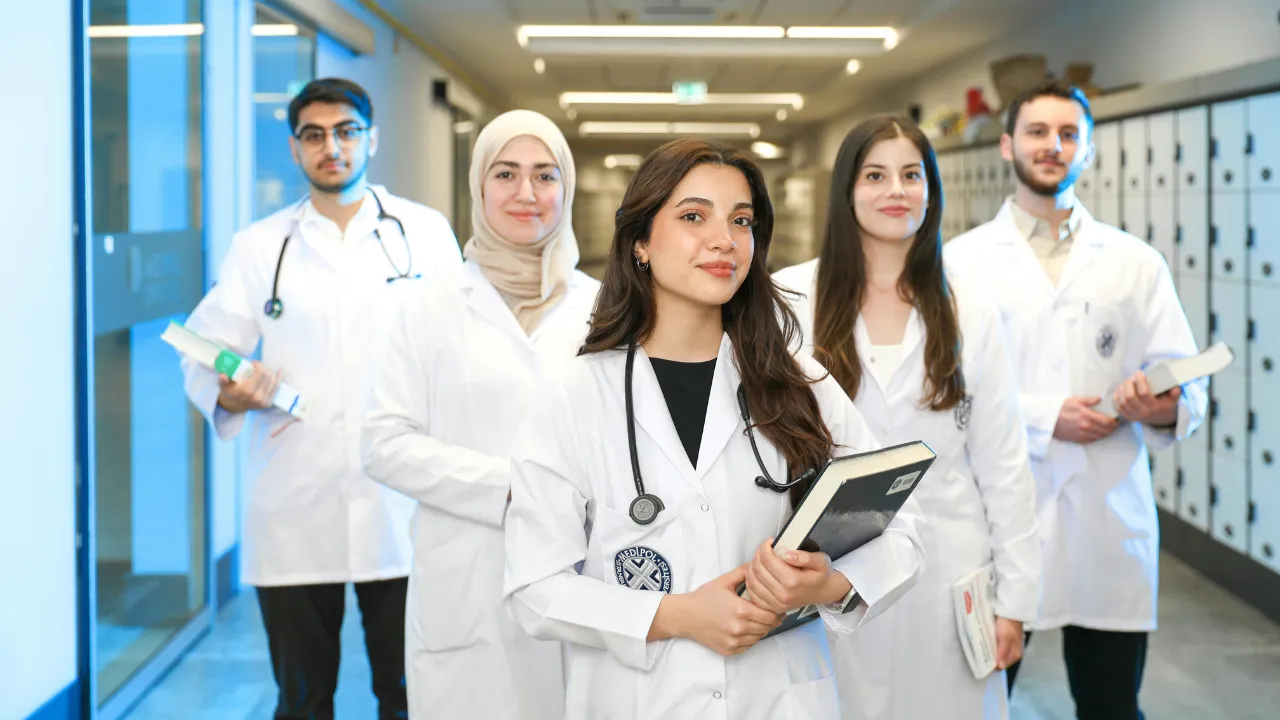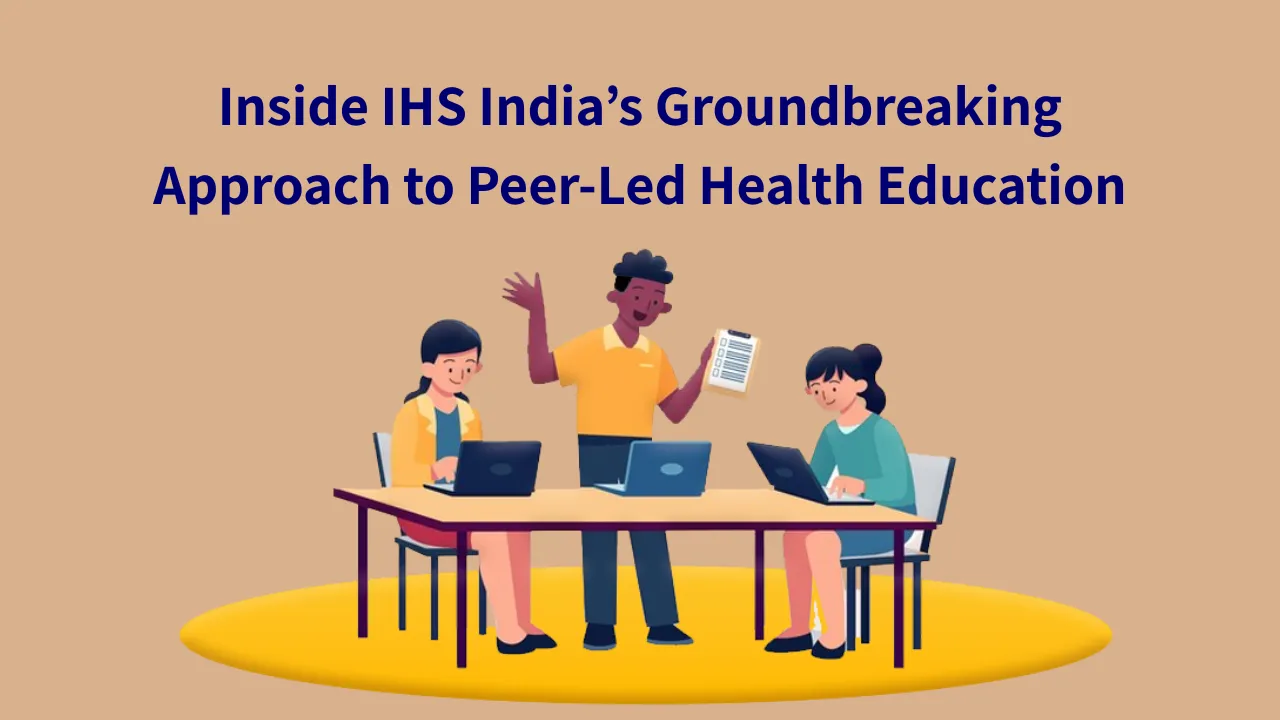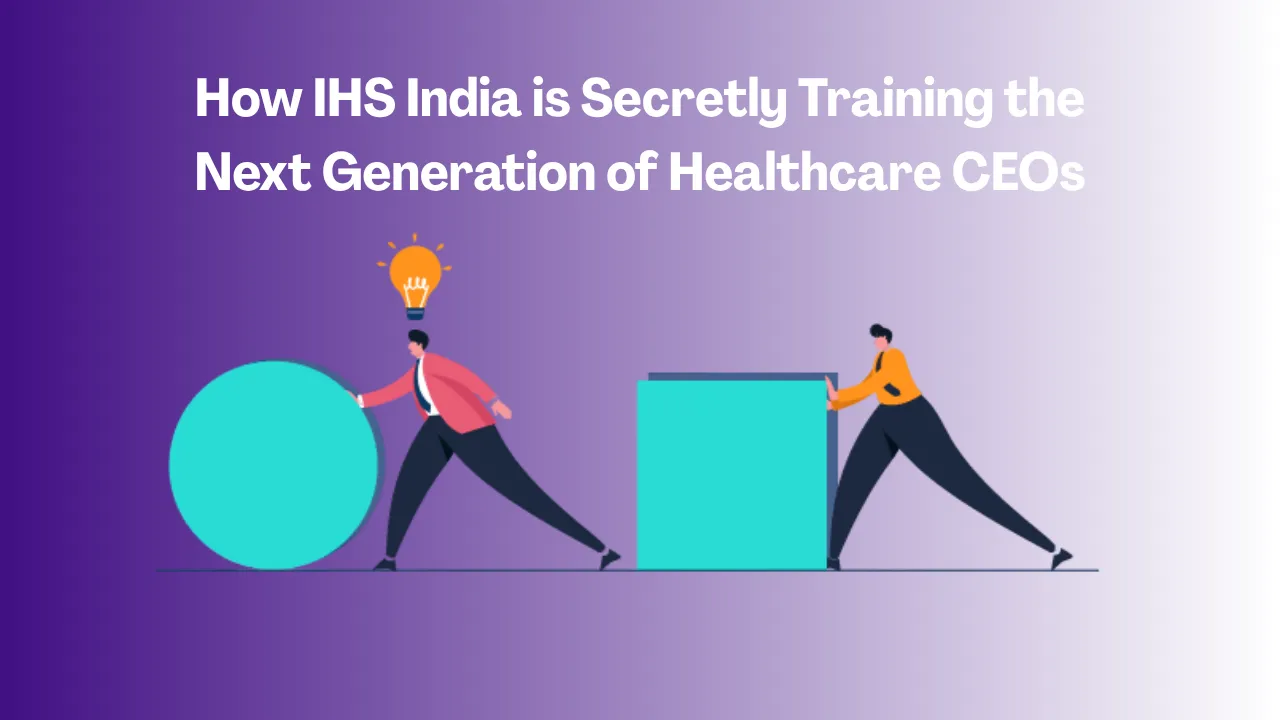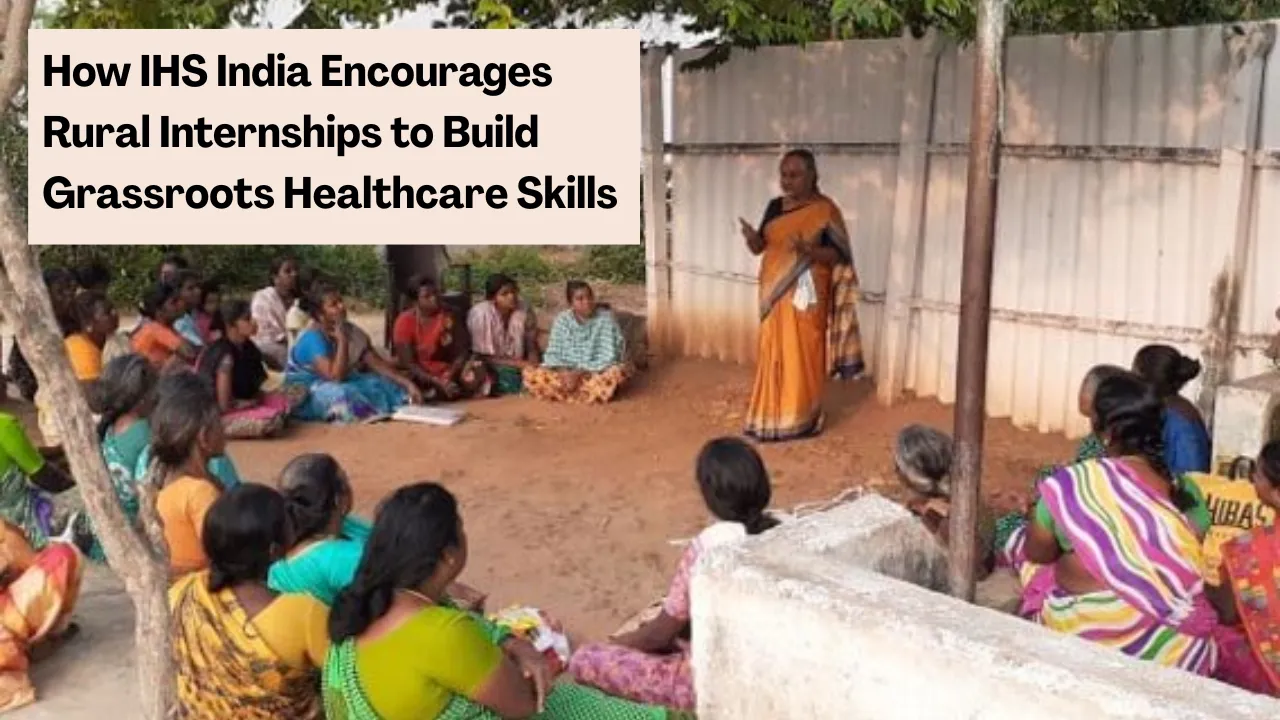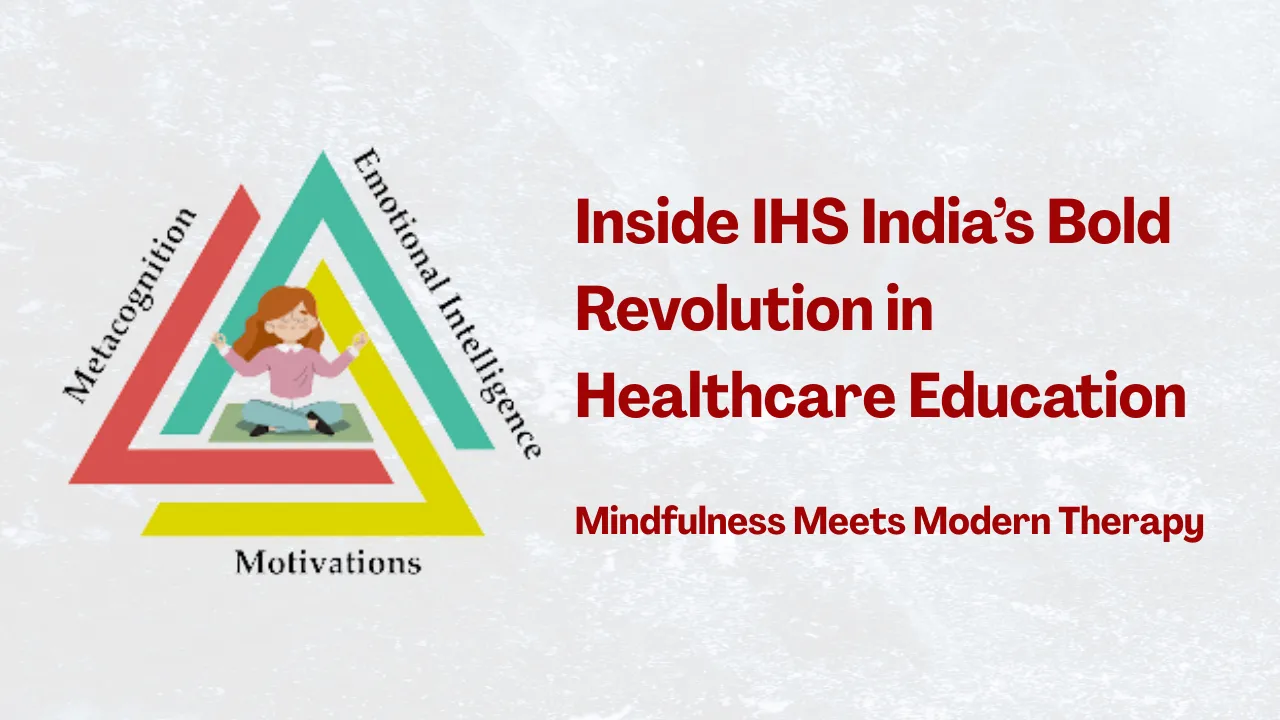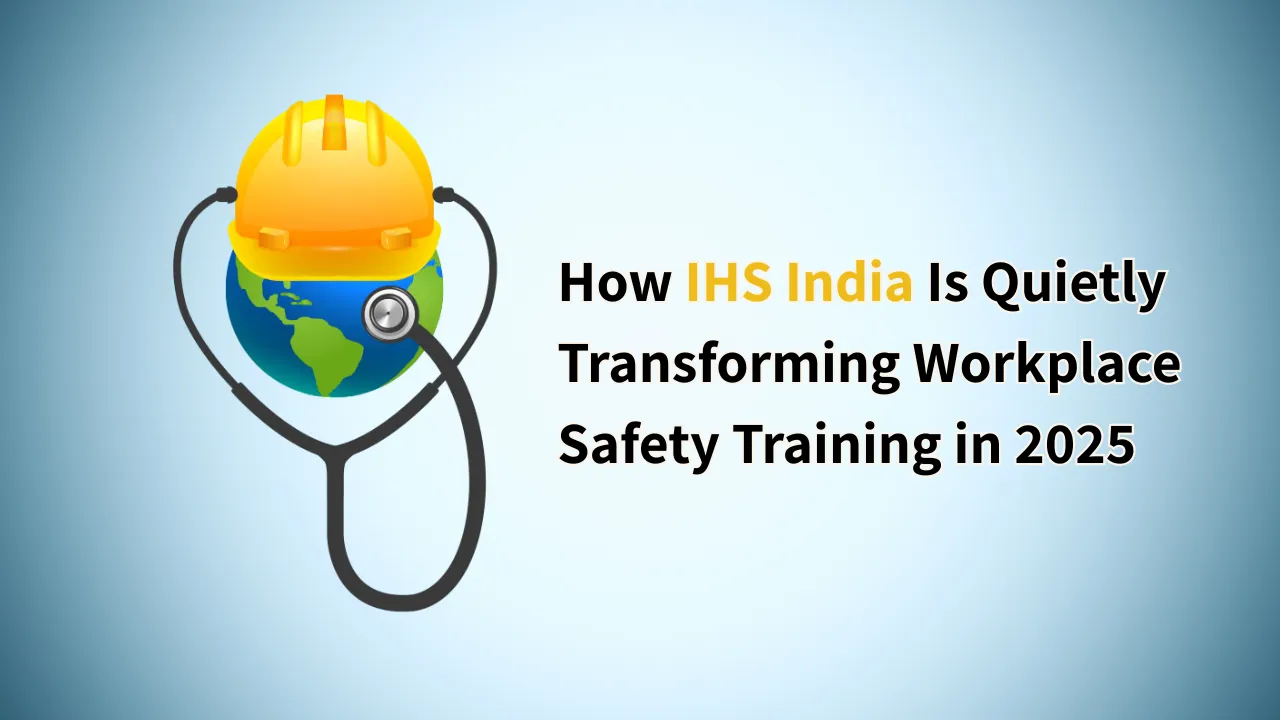IHS India: IHS India is fast emerging as a leader in healthcare education, creating a learning environment where facts, research, and real-world application go hand in hand. Instead of relying solely on textbook knowledge, the institute emphasizes learning through research, critical reasoning, and practical training. This approach is preparing students not only to succeed in their careers but to contribute meaningfully to the future of healthcare itself.
This article will explore how IHS India promotes evidence-based practice in student education and how this sets it apart from traditional healthcare institutes. You’ll learn about its teaching strategies, mentorship models, and commitment to creating competent healthcare professionals. Whether you’re a student or educator, understanding this approach will show how effective training rooted in evidence can lead to lasting change in healthcare practice.
How IHS India Drives Evidence-Based Learning in Clinical Settings
The foundation of education at IHS India is built on integrating evidence into every learning experience. Rather than simply teaching what to do in a clinical situation, the institute teaches why it should be done that way—based on research, outcomes, and ongoing evaluation. By doing so, students are trained to ask questions, investigate answers, and choose interventions grounded in fact.
This unique focus on evidence-based education builds deeper understanding, encourages curiosity, and strengthens decision-making in clinical practice. The institute uses a layered approach combining academic coursework, applied learning, and research participation to ensure that students don’t just memorize — they master and apply what they learn.
Overview Table: Evidence-Based Integration at IHS India
| Key Area | Description |
| Clinical Placements | Supervised real-world experience using research-driven methods |
| Faculty Mentorship | One-on-one guidance by experts in evidence-based practice |
| Research Projects | Opportunities for students to conduct and present original research |
| Digital Resources | Access to global journals, databases, and interactive learning platforms |
| Skill-Based Curriculum | Courses built around critical thinking and applied practice |
| Workshops and Conferences | Active involvement in learning beyond the classroom |
| Lifelong Learning Support | Continued access to learning tools and development programs |
How IHS India Supports Evidence-Based Learning
At the core of IHS India’s philosophy is a deep respect for science and inquiry. From the first semester, students are introduced to evidence-based practices that focus on understanding patient outcomes, evaluating clinical interventions, and improving healthcare delivery.
The institute avoids outdated teaching methods that depend on rote memorization. Instead, students participate in clinical research, peer discussions, journal clubs, and literature reviews. These activities help them develop an analytical mindset and an ability to discern reliable information from outdated or biased sources.
This structure of student-centered learning ensures they carry forward a practice rooted in data, not assumption—equipping them with skills that stay relevant throughout their careers.
Integration of Research in Clinical Education
One of the strengths of IHS India is how it integrates research into hands-on education. Clinical placements are not just about observing; they are spaces for learning by doing, guided by evidence. Students are taught how to use clinical guidelines, research papers, and trial outcomes to make informed decisions about treatment.
Every case becomes a learning opportunity. Faculty often use real clinical cases to show how research shapes treatment paths. Students learn to balance patient needs with clinical evidence, gaining an understanding of how to adapt theoretical knowledge in unpredictable real-life settings. This creates professionals who are not only skilled but deeply reflective.
Encouraging Critical Thinking and Analysis
Evidence-based education thrives on strong analytical skills, and IHS India is committed to building them in every student. Assignments go beyond standard questions and answers. Students are asked to critically evaluate studies, identify weaknesses in published research, and propose alternative solutions supported by evidence.
This habit of questioning builds confidence and sharpens judgment. The curriculum fosters critical thinking through seminars, case discussions, and problem-based learning models that mirror real medical challenges. These activities give students tools to become active contributors to healthcare advancement, not just passive learners.
Use of Technology in Research-Based Training
In today’s healthcare landscape, staying updated is key. IHS India understands this and incorporates cutting-edge technology into its research-based training. From accessing international journals to engaging in digital simulations, students learn using tools that are common in modern hospitals and research centers.
Interactive platforms, virtual labs, and digital case reviews make it easier for students to absorb complex information. These tools are not just added features—they are essential parts of the academic structure that make healthcare training more efficient, accessible, and engaging.
Benefits of Evidence-Based Practice in Student Careers
Students trained at IHS India are not just graduates—they are healthcare thinkers. Their deep knowledge of evidence-based methods prepares them to take leadership roles in hospitals, research labs, and public health initiatives. Employers value their ability to assess patient needs, apply relevant studies, and suggest improvements grounded in research.
This focus also opens doors for higher education, global internships, and publication opportunities. Students with a strong research background find it easier to adapt to evolving medical environments and to pursue continuous professional development in their chosen fields.
Key Features of IHS India’s Approach (List)
- Curriculum Designed Around Research: Each subject integrates current research trends and best practices from clinical fields.
- Faculty with Research Expertise: Mentors actively guide students through research design, analysis, and evidence-based problem-solving.
Student Projects and Clinical Research Opportunities
At IHS India, research isn’t confined to professors or postgraduates. Undergraduate students are encouraged to dive into their own research projects with the support of experienced mentors. These projects are often aligned with real-world healthcare problems and are submitted to national and international platforms for recognition.
The experience of designing a study, collecting data, and defending results provides invaluable applied practice. It also teaches the ethics and responsibility that come with conducting meaningful research in a clinical context.
Collaborations and Industry Exposure
To prepare students for the realities of healthcare work, IHS India has built partnerships with hospitals, academic institutions, and health organizations. These collaborations provide students access to seasoned professionals, real patient scenarios, and industry expectations.
Such exposure ensures that learning is not limited to theory. Through internships, interactive sessions, and hospital rounds, students witness firsthand how evidence-based practice works on the ground—turning abstract ideas into clinical excellence.
Continuous Learning and Professional Development
IHS India supports students long after graduation. The institute offers short-term certification programs, access to current research publications, and online modules to help alumni stay updated. This reflects the institute’s belief in lifelong learning, which is vital in a field where knowledge is constantly evolving.
Students are not just prepared for exams—they are prepared for a lifetime of professional growth and contribution to healthcare innovation.
FAQs
1. What makes IHS India different from other healthcare institutes?
IHS India stands out due to its strong focus on evidence-based education and research-oriented curriculum.
2. Are students involved in clinical research during their studies?
Yes, students actively participate in supervised research projects and gain real-world experience in clinical environments.
3. How does IHS India integrate technology into learning?
The institute uses virtual labs, online journals, and simulation tools to enhance evidence-based learning.
4. Is mentorship available for research guidance?
Absolutely. Faculty members with research backgrounds guide students through every stage of their research journey.
5. Do students get job-ready training at IHS India?
Yes, through practical clinical exposure, case-based learning, and continuous professional development programs.
Conclusion
IHS India has redefined healthcare education by making evidence-based practice the core of its teaching model. From the classroom to the clinic, every part of the student journey is enriched by a commitment to research, analysis, and critical thinking. This approach not only produces skilled professionals but thoughtful, informed contributors to global healthcare.
If you’re passionate about making a real impact in the world of medicine, IHS India is more than just an institute—it’s a launchpad.
Share your thoughts below or dive deeper into related student stories and resources to explore how evidence-based learning can shape your future.

